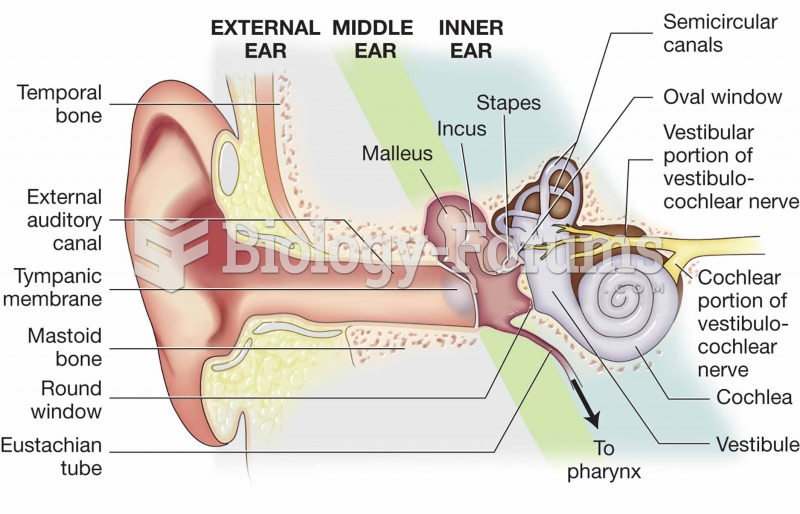|
|
|
Women are two-thirds more likely than men to develop irritable bowel syndrome. This may be attributable to hormonal changes related to their menstrual cycles.
In the United States, there is a birth every 8 seconds, according to the U.S. Census Bureau's Population Clock.
Illicit drug use costs the United States approximately $181 billion every year.
As the western states of America were settled, pioneers often had to drink rancid water from ponds and other sources. This often resulted in chronic diarrhea, causing many cases of dehydration and death that could have been avoided if clean water had been available.
Fewer than 10% of babies are born on their exact due dates, 50% are born within 1 week of the due date, and 90% are born within 2 weeks of the date.
 A young Lipizzan at the Spanish Riding School in training equipment, wearing saddle, bridle and long
A young Lipizzan at the Spanish Riding School in training equipment, wearing saddle, bridle and long
 This young boy with muscular dystrophy needs to receive tube feedings and home nursing care. He atte
This young boy with muscular dystrophy needs to receive tube feedings and home nursing care. He atte





